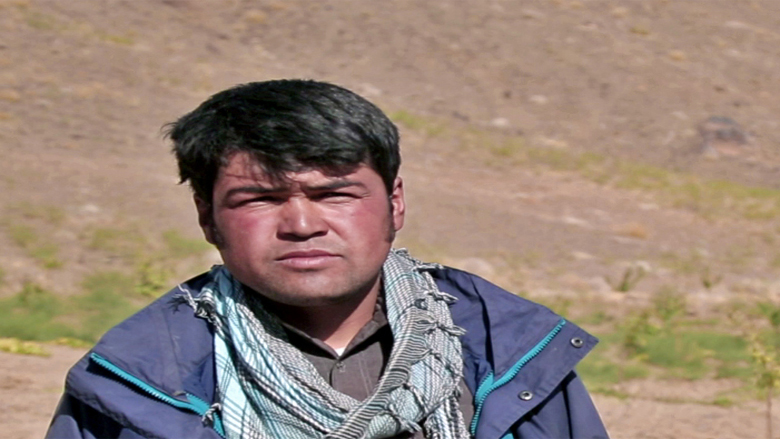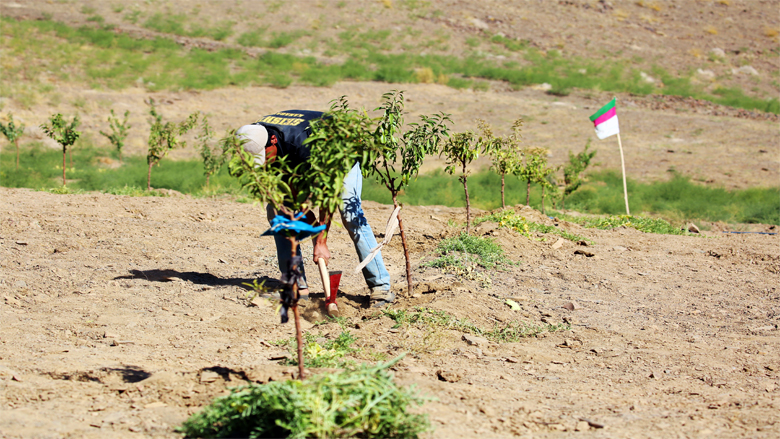NILI DISTRICT, Daykundi Province – A farm worker uses a pick to soften the earth around the almond trees as Ewaz waters the trees with a hose attached to a nearby solar-powered water pump. This new plot of almond trees is planted in a systematic and orderly grid. It is autumn and the villagers are busy working their land, harvesting wheat and other crops, and irrigating the land.
Horticulture is the main source of income for more than 125 households in the village, where Ewaz 30, lives. He harvests crops on his land to support the 12 members of his family. In December 2015, he established four new jeribs, or 0.8 hectare, of almond orchard and half a jerib of apricot orchard with help of the National Horticulture and Livestock Project (NHLP).
“NHLP introduced a new system of horticulture in our village to help us earn a better income,” Ewaz says. “These are new varieties of almonds that we did not have in the past.” The new varieties sell for 400 afghanis per kilo (about $6), more than two and a half times the price of the traditional varieties of almonds that have grown here for generations. In addition to the higher prices, the new varieties are more disease resistant than the traditional ones.
NHLP operates under the Ministry of Agriculture, Irrigation and Livestock (MAIL). With a $190 million grant support from the Afghanistan Reconstruction Trust Fund (ARTF), NHLP is working toward the overarching goal of increased productivity and overall production of horticultural products. It began national activities in April 2013 and its work will run through the end of 2020.
The project aims to promote adoption of improved production practices by target farmers, with gradual rollout of farmer-centric agricultural services, systems, and investment support across the country. Its activities are currently implemented in 300 districts in 31 target provinces, numbers that may grow as conditions warrant. NHLP activities have three components: horticultural production, animal production and health, and implementation management and technical assistance.
NHLP began its work in Daykundi Province in 2014 and currently covers six of the province’s eight districts, with plans to expand into all by the end of 2017. The project has established more than 1,400 jeribs, or 280 hectares, of new orchards in the province, growing almonds, apricots, grapes, and apples, while construction is underway on 18 rain water reservoirs to improve irrigation.



